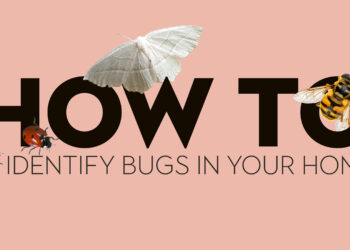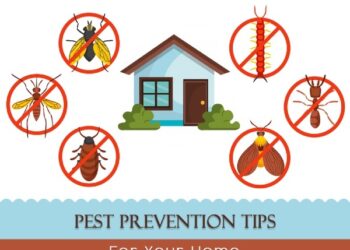Pests are a common problem in many households and businesses, and while most people are aware of the dangers associated with them, there are still many misconceptions about these unwanted visitors. These misunderstandings can lead to ineffective pest control methods and even health hazards.
In this article, we will debunk some of the most common myths surrounding pests and pest control.
Myth #1: Pests only infest dirty and unkempt areas
One of the most common misconceptions about pests is that they only thrive in dirty environments. However, pests are not picky about their living conditions and can infest even the cleanest of homes and businesses. Cockroaches, for example, can survive for weeks without food and months without water, making them extremely resilient and adaptable. Therefore, it is important to keep your environment clean and tidy to prevent infestations, but it is not a guarantee that you won’t have a pest problem.

Myth #2:
Pests are only a problem in the summer
Another myth surrounding pests is that they only pose a problem during the summer months when temperatures are warm. While it is true that many pests are more active in the warmer months, this does not mean that they disappear during the winter. In fact, some pests like rodents, seek shelter indoors during the colder months, making them a year-round problem.
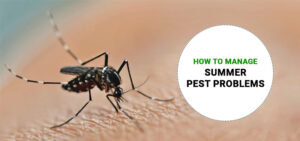
Myth #3: Home remedies are just as effective as professional pest control
While there are many home remedies and DIY pest control methods available online, they are not always effective, and some can even be dangerous. For example, using pesticides without the proper knowledge and training can pose a health risk to you and your family. Additionally, home remedies may not address the root cause of the infestation, allowing it to persist and worsen over time. Professional pest control companies have the expertise and equipment needed to effectively and safely eliminate pest problems.
Myth #4: Electronic pest repellents are a foolproof solution
Electronic pest repellents, which emit high-frequency sound waves, are marketed as a safe and effective way to repel pests. However, there is little scientific evidence to support their effectiveness, and in some cases, they may even attract pests to your home. Additionally, these devices only affect pests within a limited range, making them ineffective in larger spaces.

Myth #5: Once the pests are gone, you don’t need to worry about them anymore
Finally, it is a common misconception that once pests are eliminated, you no longer need to worry about them. However, prevention is key to avoiding future infestations. Pests can re-enter your home or business if the proper measures are not taken, such as sealing entry points and removing sources of food and water.
It is important to be aware of the common misconceptions surrounding pests and pest control. By understanding the truth about these pests and their habits, you can take the necessary steps to prevent infestations and keep your environment safe and healthy. Remember, professional pest control is always the best option for effective and safe elimination of pests.
Tips for Effective Pest Control:
Now that we have debunked some of the common myths about pests and pest control, let’s look at some effective pest control measures you can take to keep your home or business pest-free.
- Keep your environment clean: Pests are attracted to food, water, and shelter. By keeping your environment clean and tidy, you can eliminate their sources of food and water and reduce the likelihood of an infestation.
- Seal entry points: Pests can enter your home or business through small cracks and gaps in walls, doors, and windows. Seal these entry points to prevent pests from entering and re-entering.
- Remove clutter: Pests love cluttered areas because they provide shelter. By removing clutter, you eliminate their hiding places, making it harder for them to survive.
- Fix leaky pipes and faucets: Pests need water to survive, and leaky pipes and faucets can provide them with a source of water. Fixing these issues can help reduce the risk of an infestation.
- Work with a professional pest control company: While there are many DIY pest control methods available, they are not always effective, and some can even be dangerous. Professional pest control companies have the knowledge, expertise, and equipment needed to safely and effectively eliminate pest problems.
Pests and Health Hazards:
Pests can pose serious health hazards to humans and animals. They can carry and transmit diseases, contaminate food and water, and cause allergic reactions. For example, cockroaches can trigger asthma and other respiratory problems, while rodents can spread diseases such as Hantavirus and Salmonella.
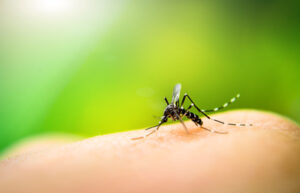
It is essential to take pest infestations seriously and address them promptly to protect the health of those around you. If you suspect a pest problem, contact a professional pest control company immediately to assess the situation and recommend the best course of action.
Sustainable Pest Control:
Sustainable pest control is an approach to pest management that focuses on using environmentally friendly and non-toxic methods to control pests. This approach reduces the use of harmful chemicals, which can have negative effects on the environment and human health.
Some sustainable pest control methods include:
- Integrated Pest Management (IPM): IPM is a holistic approach to pest management that combines various control methods to reduce the use of harmful chemicals. This approach includes identifying and monitoring pest populations, eliminating food and water sources, and using natural pest predators.
- Biological Control: Biological control involves using natural enemies of pests, such as predators, parasites, and pathogens, to control pest populations.
- Physical Control: Physical control involves using physical barriers, such as screens and traps, to prevent pests from entering buildings and homes.
- Habitat Modification: Habitat modification involves making changes to the environment to make it less hospitable to pests. For example, reducing moisture levels can discourage cockroach infestations.
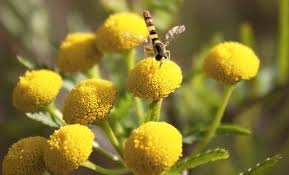
By adopting sustainable pest control methods, we can reduce the negative impact of pest control on the environment and promote a healthier and safer living environment.
Conclusion
It is essential to understand the truth about pests and pest control to effectively manage pest problems. By debunking common myths, taking proactive measures, and adopting sustainable pest control methods, we can reduce the risk of infestations, protect our health, and promote a healthier environment. Remember to work with a professional pest control company for effective and safe pest management.






